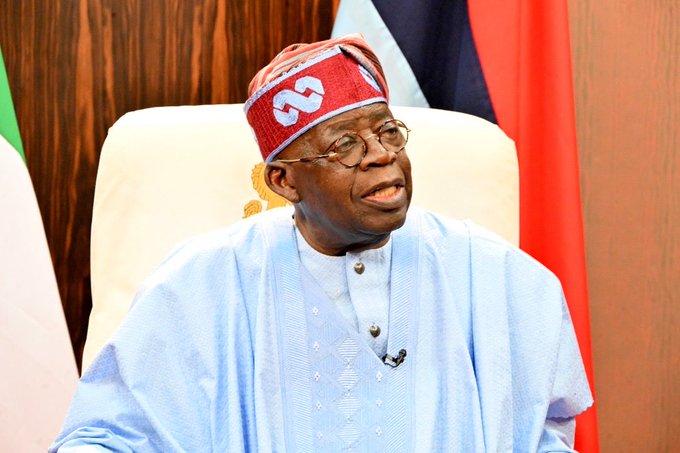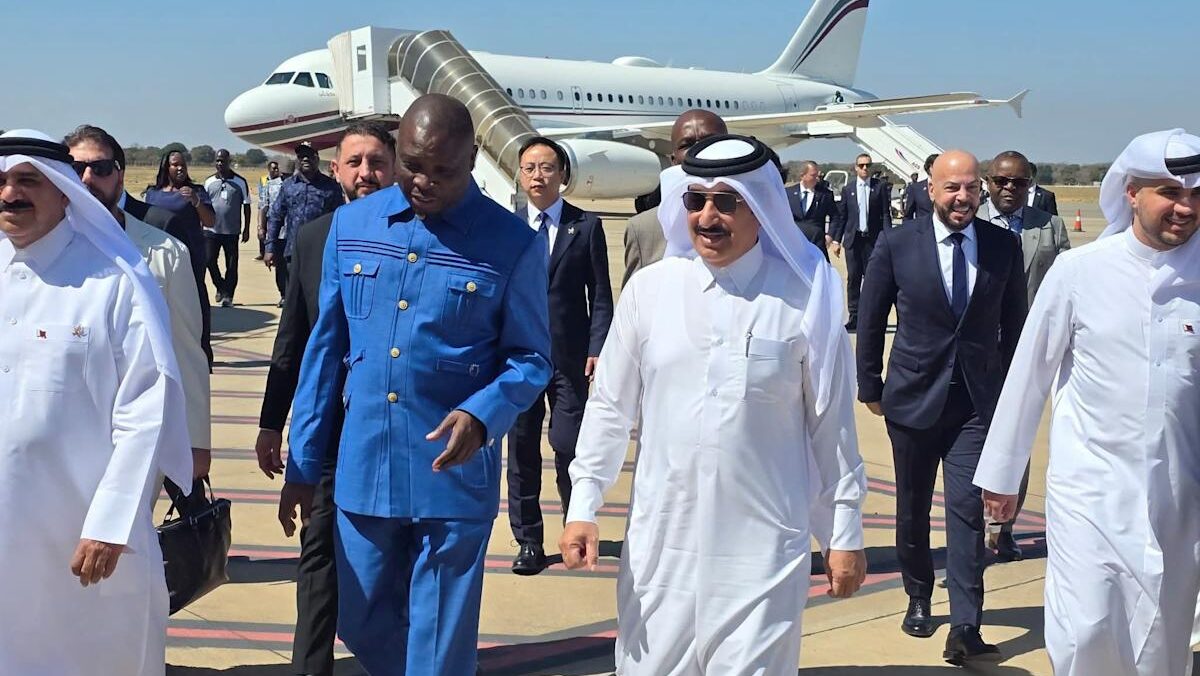A Bold Commitment for Nigeria’s Future
Qatar’s Sheikh Abdul-Rahman Hamad N.H. Al-Thani has pledged a massive $300 billion investment to accelerate Nigeria’s economic growth. This announcement marks one of the most ambitious foreign direct investment plans ever made toward an African nation. The initiative is set to unfold over the coming decade, focusing on key sectors that can reshape Nigeria’s development landscape and uplift millions of lives.
Speaking at a high-level economic forum, Sheikh Al Thani described Nigeria as “Africa’s next powerhouse,” emphasizing that the country’s potential is unmatched in energy, agriculture, and innovation. His group, Future Union, aims to blend financial support with technological expertise, ensuring that the investment leaves a lasting legacy for Nigeria’s economic future.
Key Sectors Targeted for Growth
The investment is not a general commitment it is carefully structured around sectors that can create jobs, diversify the economy, and build resilience against global challenges.
Infrastructure and Construction
Nigeria’s infrastructure has long been an obstacle to rapid progress. Sheikh Al Thani’s plan includes major allocations to upgrade roads, railways, ports, communication systems, and urban transport. These projects will connect remote regions, open trade corridors, and reduce logistics costs for businesses and farmers alike.
Energy and Natural Resources
Energy remains the backbone of Nigeria’s economy, yet it faces challenges of inefficiency and outdated systems. The investment will modernize oil and gas facilities, explore renewable energy options, and improve electricity distribution networks to ensure consistent power supply for industries and homes. The long-term goal is to position Nigeria as a leading energy hub not only for Africa but also for the global market.
Agriculture and Food Security
Sheikh Al Thani’s plan includes major investments in agriculture, particularly in irrigation, mechanized farming, and food processing. The focus will be on improving yields, supporting local farmers with modern tools, and developing agro-industries that can export value-added products. By doing so, Nigeria can strengthen its food security while generating export revenue and rural employment.

Aviation and Transport
Nigeria’s strategic location makes it a natural air transport hub for Africa. The investment plan covers aviation infrastructure, expansion of airports, and development of cargo terminals to boost trade and tourism. This could transform Nigeria into one of the most connected nations in the region, attracting global airlines and creating new business opportunities.
Why Now? The Reform Momentum
Sheikh Al Thani’s decision comes at a time when Nigeria has been pushing forward with significant economic reforms aimed at improving transparency, reducing red tape, and building investor confidence.
Recent policy changes have made it easier to register businesses, access foreign exchange, and repatriate profits. Efforts to stabilize inflation, manage debt, and enhance governance have signaled to global investors that Nigeria is serious about creating a predictable and business-friendly environment.
According to Sheikh Al Thani, these reforms were key to Qatar’s decision. “We see a Nigeria that is ready to lead, a government that listens, and a youth population that is eager to build,” he noted. His words reflect growing optimism that the right policy mix can turn Nigeria’s immense potential into tangible prosperity.
What This Means for Everyday Nigerians
For millions of Nigerians, this investment could mean much more than big numbers—it represents hope for real, visible change in their daily lives.
Job Creation: Large-scale projects in construction, agriculture, and energy will create thousands of direct and indirect jobs. From skilled engineers to local laborers, everyone stands to benefit.
Better Infrastructure: Upgraded roads, airports, and energy systems will make daily life easier and cheaper. Transportation costs will fall, and access to markets will improve.
Empowerment of Local Businesses: Small and medium enterprises (SMEs) will have new opportunities to partner with foreign investors, supply goods and services, and grow within a stronger ecosystem.
Education and Skill Development: The investment plan also includes provisions for skill training centers to ensure that Nigerian youth are equipped to participate in modern industries and benefit from new job opportunities.
Challenges and the Road Ahead
While the announcement has sparked enthusiasm, experts agree that successful execution will depend on Nigeria’s ability to provide a stable environment.
Policy Stability: Investors need assurance that business laws will remain consistent. Sudden policy shifts can deter confidence and delay implementation.
Infrastructure Bottlenecks: Many parts of Nigeria still face challenges in transport and power supply. Addressing these early is critical for the success of future projects.
Corruption and Governance: Transparency will be vital. Ensuring that funds are used efficiently and projects are not hindered by bureaucracy will be key to sustaining trust.
Local Collaboration: To maximize benefits, the government must promote local participation and technology transfer so that Nigerians can manage and maintain projects even after completion.

A Turning Point for Africa’s Economic Landscape
Beyond Nigeria, this pledge has implications for the entire African continent. It signals that the Gulf nations are ready to take a more proactive role in Africa’s development, moving from trade relationships to deep investment partnerships.
If this model succeeds, it could inspire similar collaborations across the continent, where local governments and global investors work hand in hand to unlock untapped potential. For Qatar, it’s also a chance to expand its global economic influence through strategic and sustainable investments that deliver long-term growth.
Building a Partnership of Trust
The foundation of this plan lies not only in capital but in trust and cooperation. Sheikh Al Thani has emphasized that Future Union aims to build partnerships with both federal and state governments, ensuring that investment projects align with local needs.
There is also a commitment to environmental responsibility, focusing on green infrastructure, clean energy, and sustainable agriculture. The initiative promises not just profits, but progress that preserves resources for future generations.
Moreover, Qatar’s collaboration with Nigeria aims to boost education, healthcare, and digital innovation, empowering citizens to contribute meaningfully to a modern economy.
Long-Term Impact: What the Next Decade Could Bring
If implemented successfully, this investment could redefine Nigeria’s place in the global economy. Within the next ten years, experts foresee:
- Nigeria emerging as one of the top destinations for foreign investment in Africa.
- Dramatic improvement in road and power infrastructure, making local production more competitive.
- New job opportunities across industries, reducing unemployment and brain drain.
- Stronger agricultural exports that can feed both the continent and global markets.
- More inclusive growth that touches rural communities, not just urban centers.
This transformation could also inspire Nigeria’s youth to stay, invest, and innovate within their own country, reversing the trend of migration in search of better prospects.
A Vision Rooted in Shared Prosperity
At its core, Sheikh Al Thani’s pledge represents faith in Nigeria’s people and potential. It is not just about capital it is about confidence. Qatar’s move is a signal to the world that Nigeria is ready to lead, grow, and redefine its destiny.
The partnership symbolizes a new era of collaboration where economic progress is tied to social impact, innovation, and sustainability. With careful planning and unity of purpose, this investment can transform Nigeria’s landscape turning challenges into opportunities and potential into prosperity.
The decade ahead holds promise. If the vision is realized, Nigeria will not only rise as an African powerhouse but as a beacon of how global partnerships can drive inclusive, meaningful, and lasting growth.
Do follow Gulf Magazine on Instagram.
Also Read – LJMU and Qatar Alumni Association Launches at Oryx University to Strengthen Global Connections



